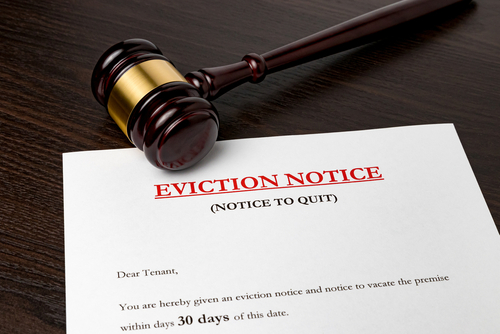
A prominent solicitors’ firm says the failure of the Renters Reform Bill to become law may have attracted headlines but the underlying problem - a court system unable to process evictions - stays the same.
A statement from the law firm, Payne Hicks Beach, says: “The government's failure to end no fault evictions is unlikely to do it any favours with younger voters and the renters community more generally - groups it probably should be looking to woo. Logistically, there are well-founded objections to the proposals as originally drafted, in particular the fact that the court system is presently unable to cope with the increase in work that would flow from landlords having to have recourse to contested possession proceedings to evict their tenants.
“The government still has not properly addressed those objections. While the renters lobby is understandably frustrated at the delay in abolishing section 21 notices, it is important not to solve one problem by creating another one.
“However the consequence is that we are left with the law in a wholly unsatisfactory state. Renters are unhappy that they can be evicted without good reason, but on the other side of the equation, landlords have to satisfy numerous conditions before they can serve a satisfactory section 21 notice, and the large number of county court judgements dealing with how those conditions are satisfied leads to a climate of uncertainty where even landlords who have been legally advised cannot be confident that their possession claims will ultimately succeed at court.”
It is clearly impossible that the problem will be resolved before the July 4 election and whichever party forms the next government, the issue will have to be addressed if eviction powers are to be changed.
However, Payne Hicks Beach says there is much better news regarding the Leasehold and Freehold Reform Act 2024, which made it into law before the end of the Parliamentary session.
The law firm says: “The Act introduces a number of welcome changes. A number of those changes will make it simpler for leaseholders to acquire the freehold, or the right to manage, or extend their leases. Historical distinctions between the treatment of leasehold houses and flats have been abolished, so that all leaseholders benefit from the same rights, which include the right to extend their lease by 990 years, as against 90 years currently for a flat, and only 50 years for a house.
“The Act continues progress towards fairer charges to leaseholders, for example by giving them greater transparency over their service charges and expanding the scope of redress schemes.
“However the devil may be in the detail. One headline change is the abolition of marriage value, which leaseholders with leases of less than 80 years left to run no longer have to pay. However that is only one element of the calculation of the cost of the lease extension.
“The Act does prescribe the value of the two other critical elements to the lease extension calculation, namely the deferment rate and the capitalisation rate. The government has said that both of these will be set at market value, but what does that mean in practice? Furthermore, when will the government determine market value? Without knowing these figures it is impossible to advise clients whether they are better off seeking at least extension under the current legislation, or under the new Act (the commencement date of which is as yet unknown).
“Leaseholders should be advised to expect the unexpected.”





.png)









%20-%20IMAGE%20Client%20Accounting%20%E2%80%93%20what%20are%20your%20options.jpg)




Join the conversation
Be the first to comment (please use the comment box below)
Please login to comment